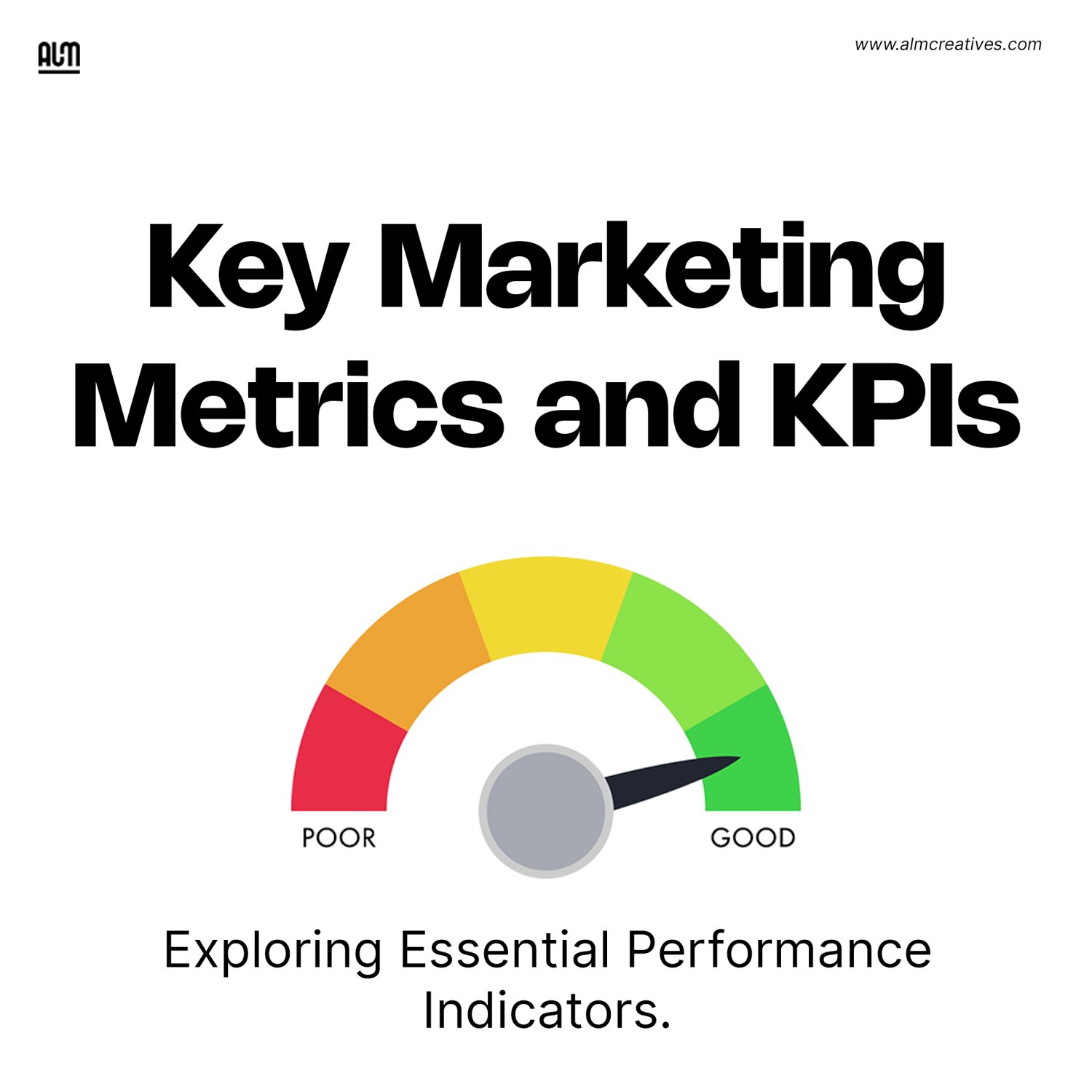Search
Key Marketing Metrics and KPIs: Exploring Essential Performance Indicators
Marketing
Today the data-driven marketing landscape, measuring the effectiveness of your marketing efforts is crucial for success. Key marketing metrics and Key Performance Indicators (KPIs) provide valuable insights into the performance of your marketing campaigns and help you make informed decisions. Let’s look into the essential marketing metrics and KPIs that every marketer should be tracking to optimize their strategies and drive results.
Customer Acquisition Cost is a fundamental metric that determines the cost of acquiring a new customer. It includes all the expenses incurred throughout the customer acquisition process, such as marketing spend, advertising costs, sales team salaries, and overhead expenses. By tracking CAC, marketers can assess the efficiency and profitability of their acquisition strategies and make adjustments as needed.
ROI is a crucial metric that measures the profitability of your marketing campaigns. It compares the revenue generated from marketing activities to the overall cost of those activities.
A positive ROI indicates that your marketing efforts are generating more revenue than they cost, while a negative ROI suggests the need for optimization. Monitoring ROI helps marketers allocate their resources effectively and focus on strategies that deliver the highest returns.
Conversion Rate measures the percentage of website visitors or leads that take a desired action, such as making a purchase, filling out a form, or subscribing to a newsletter. It provides insights into the effectiveness of your website design, user experience, and call-to-action strategies.
By optimizing conversion rates, marketers can increase the efficiency of their marketing funnels and enhance overall campaign performance.
Customer Lifetime Value is the total revenue a customer is expected to generate over their entire relationship with your business. It takes into account factors such as average purchase value, purchase frequency, and customer retention rate.
By understanding the CLV, marketers can make informed decisions about customer acquisition and retention strategies, as well as allocate resources to maximize long-term customer value.
Website Traffic measures the number of visitors coming to your website. It is an important metric that indicates the reach and visibility of your online presence. By tracking website traffic, marketers can evaluate the success of their content marketing, SEO, and advertising efforts.
Additionally, analyzing traffic sources and user behavior can provide valuable insights for optimizing marketing strategies and improving overall website performance.
Social Media Engagement encompasses metrics such as likes, shares, comments, and clicks on your social media posts. It reflects the level of interaction and interest from your audience.
Tracking social media engagement helps marketers gauge the effectiveness of their content, identify trends, and understand audience preferences. By leveraging this data, marketers can tailor their social media strategies to drive higher engagement and build stronger relationships with their target audience.
Email marketing remains a powerful tool for nurturing leads and driving conversions. Key email marketing metrics include open rate, click-through rate (CTR), bounce rate, and unsubscribe rate.
These metrics provide insights into the effectiveness of your email campaigns, the relevance of your content, and the quality of your email list. Monitoring email marketing metrics allows marketers to refine their strategies, improve engagement, and optimize campaign performance.
Measuring key marketing metrics and KPIs is essential for understanding the impact of your marketing efforts and making data-driven decisions. By tracking these metrics, marketers gain valuable insights into customer acquisition, campaign performance, and overall marketing ROI.
With a clear understanding of the metrics that matter most, marketers can optimize their strategies, allocate resources effectively, and drive measurable results in today's competitive business landscape.
Remember, the specific metrics and KPIs you track may vary depending on your industry, business goals, and target audience. Continuously monitoring and analyzing these metrics will enable you to stay agile, adapt to market changes, and achieve long-term marketing success.




